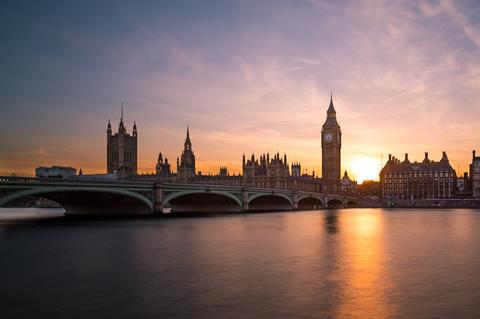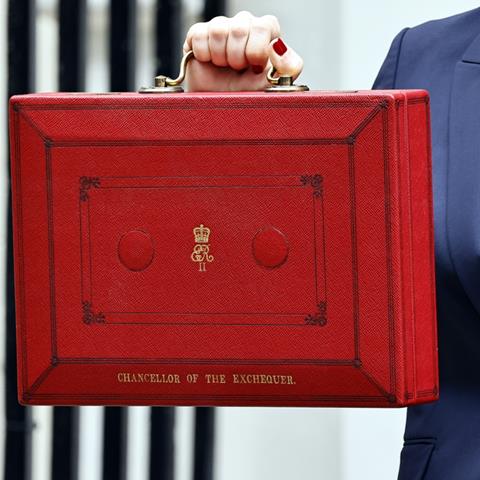The pensions industry has rallied in a last-ditch attempt to dissuade the government from changing salary sacrifice rules, just days ahead of the Budget.
With chancellor Rachel Reeves set to deliver her second Budget on Wednesday, trade bodies, pension providers, and financial advice companies have all issued public calls for salary sacrifice to be left as is.
Speculation has been rife in recent weeks after HM Treasury published the results of a survey of employer attitudes to potential changes to salary sacrifice rules. The most widely cited potential measure is a £2,000 annual cap on national insurance relief for contributions made under salary sacrifice arrangements.
“The government should provide clarity now and commit to maintaining salary sacrifice. Introducing a cap would weaken incentives to save when we are facing a generation retiring with inadequate retirement savings.”
Zoe Alexander, Pensions UK
More than a third of pension schemes have reported increased member enquiries since pre-Budget speculation began in earnest a few months ago, according to a poll from Pensions UK. Such enquiries were “almost entirely” related to tax-free cash withdrawals, after rumours swirled that the government could restrict this allowance.
On Friday, the pensions industry trade body and the Federation of Small Businesses (FSB) published a joint statement warning that “speculation alone is already eroding saver confidence, prompting unnecessary early pension withdrawals, and creating uncertainty for schemes and employers”.
According to a poll, 91% of Pensions UK members are concerned about potential pension tax changes, with an even greater proportion agreeing that “leaks and rumours are damaging confidence in pension saving”.

Salary sacrifice cap risks ‘long-term damage’
Pensions UK and the FSB warned that making more tax-related changes to pensions risked “long-term damage to public trust”, as well as damaging growth prospects, increasing business costs, and creating “unnecessary disruption” for administrators.

In a letter to Rachel Reeves, the two trade bodies stated: “While we understand the tough economic position the government is facing, reversing salary sacrifice provision through national insurance is estimated to deliver only maximum £2bn in HM Treasury saving. We believe this is insufficient to merit the levels of disruption to saving, investment and growth.”
Zoe Alexander, executive director of policy at Pensions UK, said: “The government should provide clarity now and commit to maintaining salary sacrifice. Introducing a cap would weaken incentives to save when we are facing a generation retiring with inadequate retirement savings.
“At a time when the Pensions Commission is working to set a long-term course for pension saving, a clear commitment to stability would give savers and employers the certainty they need to keep contributing, planning effectively and supporting economic growth.”
Other research has indicated that capping salary sacrifice could have significant negative effects on workers and businesses.
“Changing salary sacrifice arrangements would lead to a reduction in take-home pay for millions of employees who are saving into a workplace pension.”
Steve Hitchiner, SPP
Earlier this month, the Society of Pension Professionals (SPP) wrote to all 650 members of parliament to highlight the potential risks of changes to salary sacrifice.
Steve Hitchiner, chair of the SPP’s tax group, said: “Changing salary sacrifice arrangements would lead to a reduction in take-home pay for millions of employees who are saving into a workplace pension, with the greatest impact for those earning less than £50,284 a year.
“It would also represent another sizeable cost to employers, despite the chancellor’s public commitment against this, and would undermine the critical role that employers play in supporting and promoting good quality pension saving vehicles.”
The Association of British Insurers (ABI) has also opposed the idea of capping salary sacrifice, arguing that it would result in “millions of employees facing a poorer retirement”. A poll conducted with Opinium Research found that 38% of UK savers would put less into their pension if the chancellor enacted the cap.
A separate survey published today (24 November) by administration provider Aptia reported that the vast majority of industry professionals are against the planned salary sacrifice change. It found that 90% of those polled – which included trustees, managers, and employer representatives – opposed the rumoured cap.
Podcast: Pre-Budget Special

Pensions Expert has teamed up with sister title LAPF Investments to launch Always A Pensions Angle – the DG Publishing podcast. In the inaugural episode, Thomas Parker and Nick Reeve pluck a few items of speculation from the overactive rumour mill to discuss and debate ahead of Rachel Reeves’ speech this week. Subscribe here or wherever you get your podcasts.
Long-term policy focus ‘essential’
The Institute and Faculty of Actuaries (IFoA) has also issued a call for the government to focus on long-term policy rather than short-term fundraising.
Paul Sweeting, the IFoA’s president, said: “The most successful and effective interventions on pensions policy have always had sustainability at their heart. It is therefore important that the chancellor takes a long-term approach to any changes to the pension system in the UK and does not allow positive evolution to be derailed by budgetary considerations.
“This is essential, because little reduces faith in the retirement system like uncertainty. People need to know that their long-term goals will not be disrupted by short-term challenges.”
Some industry commentators have lambasted the government for not doing more to quell speculation about potential tax changes.

Mark Campbell, head of wealth at Isio, claimed that the Treasury had “more than ever… leaked policies and tested the water with ideas that we can be almost certain will never come to pass”.
Campbell argued that such speculation led to consumers making “potentially sub-optimal decisions” that cannot be reversed, such as taking tax-free cash lump sums early. It also negatively affected people’s “ability to plan confidently for the long term”.
“The chancellor must end the uncertainty,” Campbell said. “Endless speculation damages trust at the worst possible time – when big tax changes lie ahead.”
Speculation hits consumer confidence in pensions
It is clear that rampant speculation has hit confidence. A poll of pension savers conducted by Penfold found that almost three quarters (73%) did not believe the government would protect pensions in the Budget.
This has knock-on effects for a nation already worried about its retirement prospects. The Penfold survey also found that nearly half of savers feared not being able to retire comfortably, while 30% were uncertain. The pension provider said this signalled “a growing crisis of trust in long-term retirement security”.
A similar survey published last week from consultancy group Kearney found that nearly half (46%) of workers in the UK expect to keep working beyond normal retirement age, while three in five (62%) are concerned that they will not be able to maintain their current standard of living when they retire.
“Rumours and uncertainty can be just as damaging as actual policy changes because they drive poor decisions and weaken confidence in saving for retirement.”
Alexandra Loydon, St James’s Place
Meanwhile, Aptia’s survey of industry professionals found 80% were supportive of government legislating to protect tax-free lump sum entitlements.
This follows a petition launched by wealth management firm AJ Bell earlier this year calling for Rachel Reeves to introduce a “pension tax lock”, which would commit the government not to make any changes to tax-free cash or tax relief.
The company stated in the petition: “We believe this simple commitment could put an end to the speculation seen ahead of every Budget – speculation that we think erodes confidence in long-term saving and can all-too-often lead to people making poor, sometimes irreversible, financial decisions.”
More than 22,000 people signed the petition. The government responded as required on 22 October, outlining its current policy agenda for pensions and highlighting the importance of saving for retirement. It declined to comment on Budget-related matters.
However, the Petitions Committee has called for a “revised response” from the government, as it “did not respond directly to the request of the petition”.

‘Moving the goalposts’ will foster distrust, government told
Alexandra Loydon, group advice director at St James’s Place, said: “Rumours and uncertainty can be just as damaging as actual policy changes because they drive poor decisions and weaken confidence in saving for retirement.”
“Salary sacrifice can be incredibly powerful and effective in encouraging individuals to save more in excess of auto-enrolment minimums.”
Chris Eastwood, Penfold
Chris Eastwood, chief executive officer at Penfold, warned that a potential salary sacrifice cap would undermine the importance of such arrangements in boosting pension contributions.
“Moving the goalposts and changing retirement rulesets builds anxiety, frustration, and distrust in government bodies,” Eastwood said.
“Ultimately, the UK is in a savings crisis when it comes to pensions, with many unable to save enough by default. Auto-enrolment minimums are too low, and salary sacrifice can be incredibly powerful and effective in encouraging individuals to save more in excess of those minimums.”
With the chancellor due to present the Budget on Wednesday, the contents of the red briefcase could have significant long-term consequences for the industry and pension savers.


























